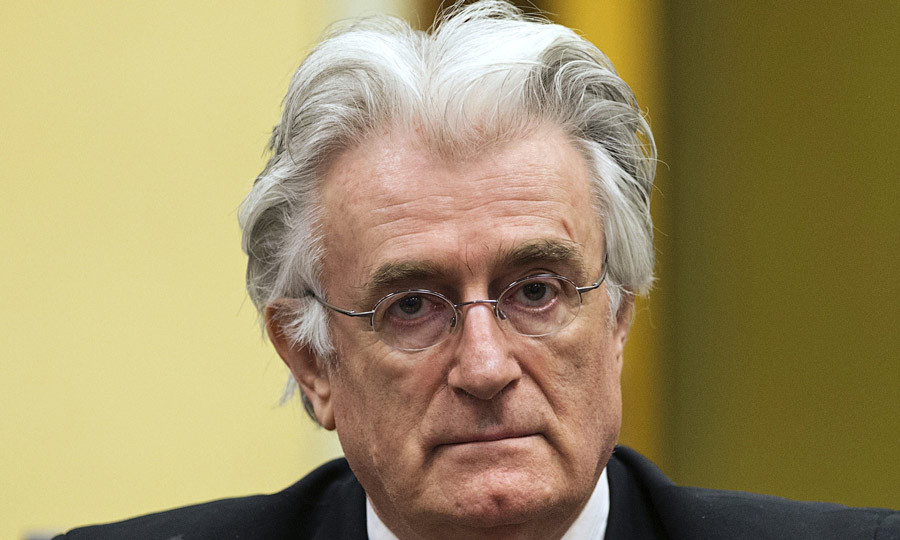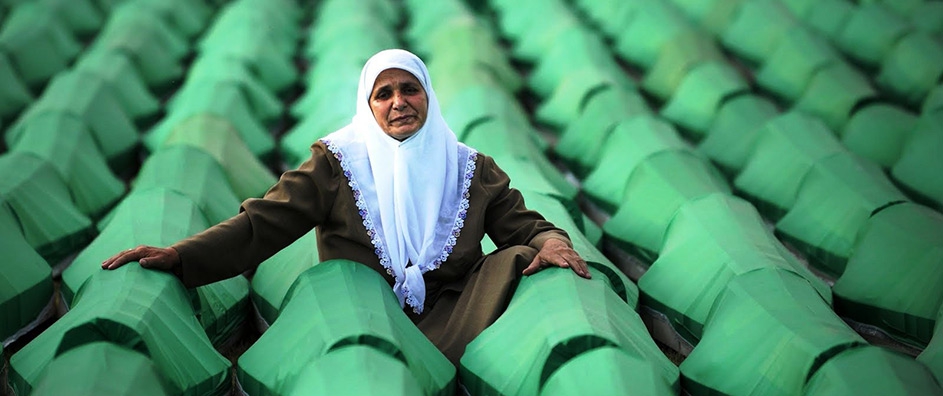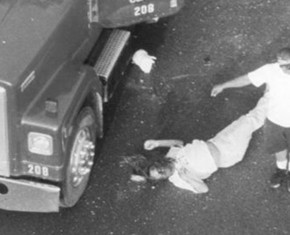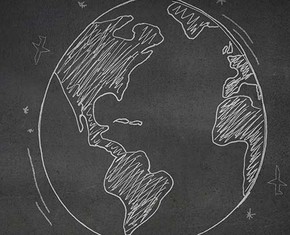The views expressed in our content reflect individual perspectives and do not represent the authoritative views of the Baha'i Faith.
…compassion shown to wild and ravening beasts is cruelty to the peaceful ones — and so the harmful must be dealt with. – Abdu’l-Baha, Selections from the Writings of Abdu’l-Baha, p. 159.
Could a psychiatrist and poet turn into a demagogue, a mass killer and a war criminal?
Could a sophisticated, modern European city—which hosted the 1984 Winter Olympics—subsequently become a murderous horror story for many years?
Could a previously-united, peaceful, contemporary European country split up into ethnic and religious factions that would then descend into violence and wantonly, cruelly butcher one another?
Tragically, yes.
On March 24, 2016, the International Criminal Tribunal for the former Yugoslavia (ICTY) convicted Radovan Karadzic, known as the “Butcher of Bosnia,” of genocide, war crimes and crimes against humanity, and sentenced him to 40 years in prison. Karadzic, a psychiatrist, award-winning poet, and former president of Serbia, is now 70 years old, so his sentence will keep him imprisoned for the rest of his life. The ICTY, appointed by the United Nations under the authority of the 1948 Convention on the Prevention and Punishment of the Crime of Genocide, has worked for more than a decade to bring about justice for the 100,000+ victims of the war and its so-called “ethnic cleansing.”

Radovan Karadzic
During his reign as the leader of the Serbian Republic in the early to mid-1990s, Karadzic presided over the bloody Siege of Sarajevo and the massacre of Srebrenica, two of the most horrific episodes of genocide and mass murder of civilians in Europe since World War II. In Sarajevo during the siege, as troops ringed the city and fired on the civilians below, warning signs went up at intersections that said “Beware! Sniper!”
You may not be familiar with this man and his crimes, so here’s a brief summary: as the president of the Serbian nation (Republika Srpska) from 1992-1996, Radovan Karadzic (a Greek Orthodox Christian) directed the Serb armed forces to genocidally murder thousands of Bosniaks (Bosnian Muslim) and Bosnian Croat (Catholic) civilians during the Bosnian War. The Serbian Army, following Karadzic’s written orders, conducted a brutal scorched-earth campaign, burning down homes, capturing and raping women and rounding up Muslim and Croat men and boys. Most of the males were never seen again. The Army laid siege to Sarajevo in the former Yugoslavia for almost four years, ruining the entire city and killing 12,000 innocent civilians, including women and children. Then, in July of 1995, they committed the genocidal murder of 7800 men and boys in Srebrenica, burying them in mass graves. (https://en.wikipedia.org/wiki/Srebrenica_massacre)
Many lower-level military officers and enlisted men have already been convicted of war crimes and genocide by the ICTY—but never the leader of an entire country.
The Court’s judgment means that Radovan Karadzic has become the first head of state ever tried and convicted by an international tribunal, and sentenced to prison for war crimes and genocide. (One other political leader—Jean Kambanda, the Interim Prime Minister in Rwanda’s caretaker government during the 1994 Rwandan Genocide—avoided trial by pleading guilty to genocide in 1998 and is now serving a life term in Koulikoro Prison in Mali.)
Why is the Karadzic case significant? For three very important reasons:
1. Universal justice—one of the central principles of the Baha’i Faith—requires an international tribunal that can effectively arrest, indict, prosecute and punish world leaders who start wars and order their militaries to commit genocidal atrocities against humanity:
…religion is a mighty stronghold, but that it must engender love, not malevolence and hate. Should it lead to malice, spite, and hate, it is of no value at all. For religion is a remedy, and if the remedy bring on disease, then put it aside. Again, as to religious, racial, national and political bias: all these prejudices strike at the very root of human life; one and all they beget bloodshed, and the ruination of the world. So long as these prejudices survive, there will be continuous and fearsome wars.
To remedy this condition there must be universal peace. To bring this about, a Supreme Tribunal must be established, representative of all governments and peoples; questions both national and international must be referred thereto, and all must carry out the decrees of this Tribunal. – Abdu’l-Baha, Selections from the Writings of Abdu’l-Baha, pp. 248-249.
2. At an even higher moral level, the basic concept of civilization itself demands that those who kill thousands do not become heroes:
…human ferocity proceeds from selfishness, greed and oppression. It springs from no natural necessity. Man needlessly kills a thousand fellow creatures, becomes a hero and is glorified through centuries of posterity. A great city is destroyed in one day by a commanding general. How ignorant, how inconsistent is humankind! If a man slays another man, we brand him as a murderer and criminal and sentence him to capital punishment, but if he kills one hundred thousand men, he is a military genius, a great celebrity, a Napoleon idolized by his nation. If a man steals one dollar, he is called a thief and put into prison; if he rapes and pillages an innocent country by military invasion, he is crowned a hero. How ignorant is humankind! Ferocity does not belong to the kingdom of man. It is the province of man to confer life, not death. It behooves him to be the cause of human welfare, but inasmuch as he glories in the savagery of animalism, it is an evidence that divine civilization has not been established in human society. – Abdu’l-Baha, The Promulgation of Universal Peace, p. 102.
3. The Baha’i teachings call for “uprooting” every “oppressor for his tyranny:”
God hath pledged in His Book to lay hold upon every oppressor for his tyranny, and to uproot the stirrers of mischief. Know ye that such holy deeds exert, in themselves, a great influence upon the world of being — an influence which is, however, inscrutable to all save those whose eyes have been opened by God, whose hearts He hath freed from obscuring veils, and whose souls He hath guided aright. – Baha’u’llah, The Summons of the Lord of Hosts, pp. 206-207.
Today’s international tribunal conviction of a murderous, genocidal tyrant sets two major, important precedents—it strengthens the concept and the reality of international law and a global court system that delivers equal justice to all; and it puts other tyrannical world leaders on notice that the old excuse of national sovereignty will no longer conceal their crimes against humanity or protect them from prosecution and prison.
















Comments
Sign in or create an account
Continue with Googleor